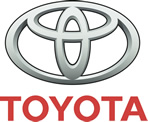Global Light Vehicle Sales to Decline 15% in 2009, says Polk Study.
Study shows worldwide volumes wont return to pre-crisis levels until 2012.

R. L. Polk & Co.s latest market study released today predicts that the automotive market wont emerge from the worldwide recession until 2012, later than previously forecast, due to worsening economic conditions. The study further predicts that Global light vehicle sales will decline 14.7 percent from 2008 levels to 55.2 million units in 2009.
Key Findings:
• Emerging Markets Have Greatest Growth Potential
• Asian Automakers Gain Market Share in U.S.
• Scrappage and Tax Incentives Provide Short-Term Help for Saturated Markets
• Toyota Maintains Position as the Top Manufacturer
Long-term growth for the global automotive market will come from the "emerging" markets of Latin America; Central and Eastern Europe; Africa and the fast-growing Asia-Pacific/Middle Eastern region (excluding the developed market of Japan). Beginning in 2015, Polk expects more light vehicles will be sold in the aggregated emerging markets than in the combined "saturated" markets of the United States, Canada, Western Europe and Japan.

"We see China and India as key drivers of growth, as vehicles become attainable for an increasing percentage of these countries huge consumer populations," said Uwe Biastoch, director of global forecasting at Polk. "Like Tata Motors with the recent launch of the low-cost Nano in India,manufacturers that innovate and produce market-specific products will be successful in emerging markets," said Biastoch.
These emerging markets will come out of the current crisis three years earlier than the saturated regions. Light vehicle sales in the emerging markets will top 2007 levels in 2011; this wont happen until 2014 in the saturated regions.


The U.S. has been hard-hit by the economic crisis, and new vehicle sales have dropped from a high of almost 17.5 million in 2000 to 13.2 million in 2008, with a further decline to 10 million projected for 2009. Polk predicts that 2009 will mark the end of U.S. market share dominance for the domestic automakers: Asian manufacturers will capture 47 percent of U.S. market share, compared to 44 percent for American automakers and 9 percent for European brands.
Western Europe will fare better than the United States and Canada in the short term, in large part because of scrappage incentives introduced in countries including Germany and Italy. Light vehicle sales in Western Europe will fall 9 percent from 2008 to 2009, compared to 24 percent in the United States and Canada during the same timeframe.
"The U.S. market is currently in a state of flux, with the impact of Chryslers Chapter 11 filing yet to be realized and GMs fate uncertain. It also remains to be seen whether the Obama administration will follow the lead of some European countries and reward consumers who turn in old vehicles and purchase cleaner cars, and what the impact of such a fleet modernization initiative might be," said Ulrich Winzen, chief analyst at Polk.


Worldwide, Toyota will maintain its position as the top manufacturer, with a fairly stable market share of 12 percent through 2020. Ford and General Motors have both seen their global market share drop by nearly five percentage points from 2000 to 2008, and Polk expects both to lose more market share through 2012. Volkswagen, on the other hand, will gain almost a point of market share in the next three years. "Volkswagen is making great inroads in China, which will certainly boost its success worldwide. At some point in 2009, we expect Volkswagen to surpass GM as the number two manufacturer in the world, although the race will be close," said Biastoch. "The trend could change temporarily to GMs benefit if the proposed U.S. scrappage incentive passes."
R. L. Polk & Co. is a provider of automotive information concerned with marketing.
Source: R. L. Polk & Co.